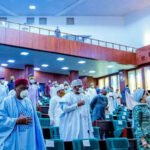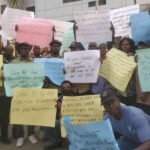The International Day of Education (IDE), commemorated on 24 January, is a day set aside by the United Nations General Assembly to celebrate the role of education in peace and development.
According to United Nations Educational, Scientific and Cultural Organization (UNESCO), education is a human right, a public good and a public responsibility.
However, in Nigeria, education day does not deserve to be celebrated because of the myriad of problems facing the sector.
In September 2022, UNESCO’s Institute of Statistics announced that Nigeria had 20 million out-of-school children, even though the federal government has disputed this figure.
Also in 2022, Nigeria’s Minister of Education, Adamu Adamu, admitted his failure to reduce the number of out-of-school children in the country despite the issue being one of his key priorities for over seven years.
After the minister admitted his failure, it was expected that the president would relieve him of his duties for failure to deliver on his mandate, or that he would resign, but none of this happened.
In 2015, Nigeria signed a commitment to achieve the United Nations Sustainable Development Goal (SDG) four, to ‘ensure inclusive and equitable quality education and promote lifelong learning opportunities for all’, by 2030. This is the same year in which President Muhammadu Buhari assumed office.
But nearly eight years after adopting the SDGs, Nigeria is unlikely to achieve goal four by 2030.
The basic education sector in Nigeria is lacking the necessary funding and governmental support, with the annual monetary allocations to the sector usually less than the minimum of 15 percent recommended by UNESCO.
In spite of these concerns, Nigeria has yet to prioritise addressing the gaps in providing basic education for several millions of children
Also, tertiary education in Nigeria is constantly under threat as the Academic Staff Union of Universities (ASUU) continues to threaten strike actions over its never-ending unresolved issues with the federal government.
Furthermore, lots of public universities in the country have poorly equipped laboratories, dilapidated lecture halls and hostels.
President Buhari and the education minister need to publicly apologise to Nigerians and the millions of out-of-school children for failing them.
The Universal Basic Education Commission (UBEC), which was introduced to provide free primary and junior secondary education for all, should also apologise for not completely fulfilling its mandate.
Also, the various state governors that have consistently failed to match the Universal Basic Education Commission (UBEC) grants should apologise to Nigerians for failing our children.
The theme of the 2023 IDE is ‘Invest in People, Prioritise Education’. We, therefore, call on the government at all levels in Nigeria to ensure they proritise education in order to accelerate progress toward achieving the SDGs.
Photo source: Oxfam International






